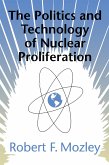From Enslavement to Environmentalism takes a challenging ethnographic and historical look at the politics of eco-development in the Zimbabwe-Mozambique border zone. David Hughes argues that European colonization in southern Africa--essentially an unsuccessful effort to turn the region into another North America or Australia--has profoundly reshaped rural politics and culture and continues to do so, as neoliberal developers commoditize the lands of African peasants in the name of conservation and economic progress.
Hughes builds his engaging analysis around a sort of natural experiment: in the past, whites colonized British Zimbabwe but avoided Portuguese Mozambique almost entirely. In Zimbabwe, chiefdoms that had historically focused on controlling people began to follow the English example of consolidating political power by dividing and controlling land. Meanwhile, in Mozambique, Portugal perpetuated traditional practices of recruiting and distributing forced labor as the primary means of securing power. The territory remained unmapped. For almost the entire twentieth century, a sharp disjuncture in the politics of land, leadership, labor, and resource use marked the border zone.
In the late 1990s, as white South Africans began to establish timber plantations in Mozambique, that difference began to be effaced. Under the banner of environmentalism and economic progress, tourism firms were allowed to claim peasant farmland. The objectives of liberal conservationists and developers, though high-minded, led them to commoditize ancestral lands. Southern African policymakers supported this new form of colonization as a form of racial integration between white investors and black peasants, paving the way for an ironic and contentious situation in which ethnic tolerance, gentrification, and land-grabbing have gone hand in hand.
From Enslavement to Environmentalism engages topics central to current debates in anthropology, resource politics, and development policy, and will be of interest to both regional specialists and generalists.
Hughes builds his engaging analysis around a sort of natural experiment: in the past, whites colonized British Zimbabwe but avoided Portuguese Mozambique almost entirely. In Zimbabwe, chiefdoms that had historically focused on controlling people began to follow the English example of consolidating political power by dividing and controlling land. Meanwhile, in Mozambique, Portugal perpetuated traditional practices of recruiting and distributing forced labor as the primary means of securing power. The territory remained unmapped. For almost the entire twentieth century, a sharp disjuncture in the politics of land, leadership, labor, and resource use marked the border zone.
In the late 1990s, as white South Africans began to establish timber plantations in Mozambique, that difference began to be effaced. Under the banner of environmentalism and economic progress, tourism firms were allowed to claim peasant farmland. The objectives of liberal conservationists and developers, though high-minded, led them to commoditize ancestral lands. Southern African policymakers supported this new form of colonization as a form of racial integration between white investors and black peasants, paving the way for an ironic and contentious situation in which ethnic tolerance, gentrification, and land-grabbing have gone hand in hand.
From Enslavement to Environmentalism engages topics central to current debates in anthropology, resource politics, and development policy, and will be of interest to both regional specialists and generalists.
Dieser Download kann aus rechtlichen Gründen nur mit Rechnungsadresse in A, D ausgeliefert werden.









